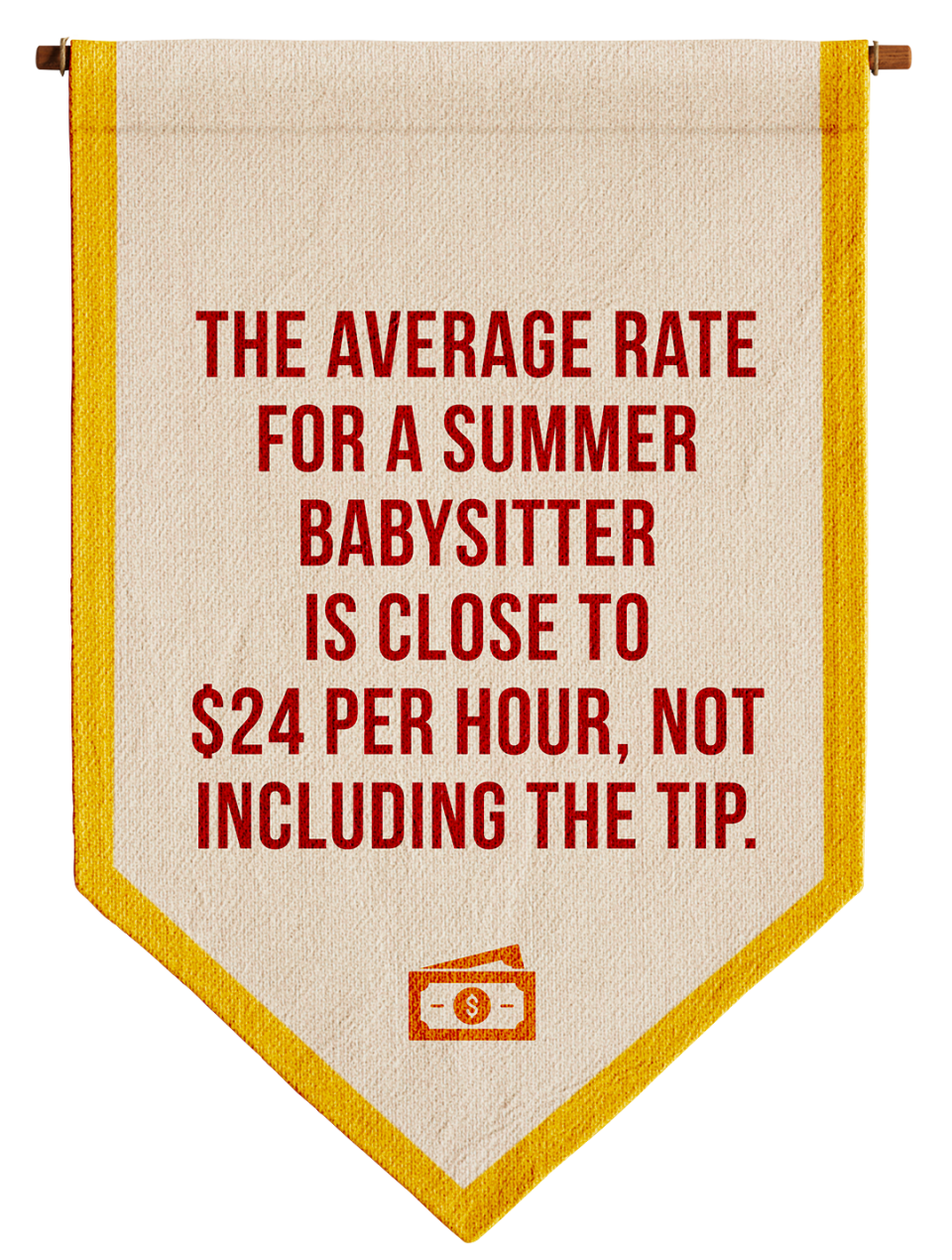It's Winter. Raise Your Hand If You've Already Booked Your Summer Camp.

The ground is frozen, the trees bereft of leaves, and groundhogs around the country have retreated to warmer climes after spotting their shadows. Never mind that summer still feels impossibly distant; for many parents in or near metropolitan areas, it’s already that dreaded time of year: Summer Camp Signup Season.
Through the dead of winter, it’s time to guesstimate summer workloads, map out summer vacation plans, bid for camps, and scrounge up the funds needed to lock them in place. Act too slow or — god forbid! — forget to register, and you could pay the price come summer with long camp commutes, barely workable schedules, activities your kids hate, prices you can’t afford.
As parents often do when faced with the impossible, they take to social media to commiserate. “Happy Summer Camp Registration Day to all who celebrate,” one Massachusetts dad quipped on X, the site formerly known as Twitter, back in early January.
A mom in Maine fired off: “Getting my clicking finger ready to register the boys for summer camp at 9am, will report back.”
From San Francisco: “Failed to get a spot in the Wheel Kids summer camp this morning. I was refreshing until reg opened, had my form pre-filled, knew the sessions I wanted, but still wasn't fast enough.
Another parent posted: “How do I manage to forget — every year — that you have to register your kids for summer camp in January?"
For those who aren’t intimate with this ritual — what one North Carolina dad dubbed the “epic scramble to get the kid into summer camps” — it can be easy to suspect these parents are exaggerating, or at least overeager. Maybe they’re those cringey helicopter parents? After all, we’re talking about camp, an extracurricular, something that’s supposed to be fun while schools are closed. Why the stress?
But that perception of camp as a mere enrichment is itself part of what makes securing summer plans such a costly, logistical nightmare for so many families, said Raena Boston, co-founder of the national family advocacy organization Chamber of Mothers and a mom of three who lives in Florida. After all, most U.S. kids have all available parents in the workforce. For a lot of their families, camp is child care, an essential work support that keeps kids safe when schools are closed so their parents can stay employed. That is, there is nothing extra about it.
“Parents are not just putting kids in camp because they have all this disposable income,” Boston says. “They literally need a solution to cover the 10 weeks that kids are not in school and they need to go to work every day.”
Considering camp as something that Boston calls “a nice to have” rather than “infrastructure” adds up to a hot summer mess: a dearth of affordable and public camp options; a dizzying array of week-long private specialty camps (like soccer camp or theater camp) that pick up the slack, but sometimes charge exorbitant prices; camps of all varieties shutting shop hours before the workday ends and weeks before the school year begins; and parents — often moms — left to reinvent the wheel year after year, piecing together summer child care on a week by week, sometimes hourly, basis.

Summer child care dysfunction starts early.
In terms of a solution, “you just really have to jigsaw it together,” said Stephanie Mayers, a mother of two who works as a publicist and booking agent in a part of New Jersey where, like in many places, camp is a struggle. Enrollment for loads of camps opens with the calendar year. Early Bird rates might get announced before Thanksgiving. Priority registration for, say, returning campers can start even earlier.
Two summers ago, Mayers’s daughter’s swimsuit was barely dry from that summer’s camp fun when the program administrators advised them to reserve a spot for next summer. Mayers balked. Sure, her daughter had a great time and the camp had unusually long hours, but what if they wanted something different next year? Anyway, who has the money sitting around to pay for camp a full year in advance? A few months later, now ready to commit, Mayers learned there were no spots left. For this summer, she’s taking no chances. She booked several weeks of summer camp way back in the fall.

In policy circles, summer camp woes often take a backseat to the early childhood child care crisis, leading to a dearth of studies about summer child care for school-aged kids. But those that exist show that Mayers’ struggle is hardly unusual. The Center for American Progress found in a 2019 study that about three-fourths of parents surveyed experienced at least some difficulty piecing together summer child care, about 20% said there weren’t enough camp slots where they lived, and more than half reported cost to be a big challenge.
Frequently, a family’s ability to secure summer camp hinges on the resources they have. Trying to win a coveted spot typically requires keeping track of when various camp enrollments open, having free time and a computer with an internet connection to bid for a spot, and, of course, the money or credit to pay in advance. “All of this is inequitable if you’re not a high earner,” says Betsy Wolf, an education researcher whose three children range in ages 4 to 11.
Washington D.C., where Wolf lives, offers city-run summer camps which are popular and typically far more affordable than the private ones. But the city-funded slots fill up at lightning speed through a complicated lottery that opens weeks after the private ones, creating yet another parenting puzzle: Should parents with the means pay for the pricier private camps in January to guarantee they have summer child care? Or do they roll the dice and hold out for the affordable city-run camps, not knowing if they’ll get in?
The problem is clear, says Boston: There aren’t nearly enough affordable and public options out there. Government doesn’t invest enough money in summer child care to meet the need. Take New York City’s city-run Summer Rising program, a free, whole-workday camp that offers a mix of academic review in the morning and fun activities in the afternoon. Last year, even with room for 110,000 children, about 45,000 children were initially turned away due to lack of space.
Meanwhile, Raena Boston’s kids won spots in a popular and affordable camp in Florida run by the parks department. Boston was hesitant to reveal where that program is, for fear of flooding it with even more families clamoring to get in.

Even if camp is secured, summer child care gaps abound.
After parents lock in their camp plans, they are hardly guaranteed a sweat-free summer. Camp hours often run shorter than even the typical school day. This means parents can end up paying twice: once for camp and again for either an after-camp babysitter or, if the program offers them, “extended hours” which come closer to matching a traditional workday.
This adds up; a week with full, extended-day coverage in New York City’s YMCA camps — one of the more affordable options — costs more than $550 in some neighborhoods. And data from UrbanSitter shows the national average rate for a summer babysitter is close to $24 per hour for just one child, not including the tip.
For parents like Corrine Terrell, a single mother of eight who makes a base rate of less than $10 an hour as a tip worker at an events community center in Chicago, paying for a full day of child care is simply not an option. Summer is already her most financially strapped season. With schools closed, her family loses not only the free child care she needs to work, but free school lunches and breakfasts. “My anxiety is off the charts and usually I lose a very significant amount of weight in the summer, because I’m the last priority,” she says.
The community center where Terrell works has a wonderful, free summer camp that Terrell’s school-aged children can attend, so long as she manages to snag a spot fast enough. But the camp doesn’t cover the full workday, so Terrell asks her supervisor for permission to work shorter days, adding up to thousands of dollars lost during the months when she needs money most. “I take a huge pay cut. It literally just covers my bills and my rent” and nothing else, Terrell says. “The biggest downfall for single mothers and low-income families is not having adequate child care to be able to work the hours you need so you can maintain life.”
And it can be nearly impossible to find camp that covers the whole summer, says Boston of Chamber of Mothers. Many camps are staffed by college kids, and because colleges typically start weeks earlier than school districts, camps can close well before the school year begins. In 2022, Marisa LaScala, a senior editor of this publication, had to piece together more than 20 days of care between the end of New York City’s Summer Rising program and the beginning of her daughter’s public school, even though they were both run through the same Department of Education. To add to the injury, even though all of the informational materials said the camp ended at 6 p.m., on the first day LaScala found out the building had to be empty and locked by 6, so pickup was really at 5. “Parents really have to scrap for every hour, every day,” she says.

With all the hassle and expense involved, it should come as no surprise that most families forgo camp altogether, as a 2018 study from the New America Foundation’s Better Life Lab found. Some families don’t need summer child care because they have stay-at-home parents available. Others have grandparents ready to pitch in.
But for shift and gig workers with unpredictable hours, the advanced planning that many camps demand can make them prohibitive from the get go. Same with workers who need child care coverage outside of the traditional workday.
Parents forgoing formal camp instead hire babysitters and cobble together other solutions as best they can, but these often hinge on shifting circumstances that can be impossible to control. Last summer, Tranicea Dixon, a service worker in Chicago whose hours fluctuate week to week, turned to her sister to look after her 6-year-old daughter while she worked. But this summer, her sister’s hands are full with a new baby, so Dixon is back to square one, trying to figure out how to make summer work. She imagines it will involve some combination of free camp for low-income families and a shortened work schedule.
Indeed, the Center for American Progress study found that due to a lack of child care, more than half of parents they surveyed planned to make job changes during the summer that result in a loss of family income. Other times, kids can get left in less than ideal, and sometimes potentially unsafe, situations. They might spend large chunks of summer glued to a screen, or be left on their own for longer stretches than they or their parents are comfortable with, or at an age that puts their families at-risk of being reported to child protective services. In Illinois, for instance, state law considers leaving a 13-year-old home alone grounds for neglect.

It doesn’t have to be this hard.
To be sure, it’s not this difficult everywhere, or for everyone. Wolf in DC has friends who swear it’s cheaper to rent houses outside of the city where they work remotely while their kids attend camps that are more affordable and easier to get into, possibly because these areas have more stay-at-home parents to look after kids in the summer.
My family has a similar workaround: for several weeks in the summer, my husband and I work remotely while staying with our children’s grandmother in Montreal, where the YMCA camp is much cheaper with longer hours. Parents like us who are fortunate enough to have the option to work-at-home have access to other solutions too, like making up for day hours with children underfoot by working at night.
Meanwhile, in some places, policy makers are creating school schedules that better reflect the reality that in this day and age most parents work. Spurred by concerns over learning loss, a growing number of schools in states including Mississippi, Michigan and Virginia have followed the lead of other countries by shortening summer break and spreading vacation days more evenly throughout the year, which some parents say makes for easier child care planning. (Grandparents, one pointed out, are also often more able and willing to help out when it’s for short stints of time.)
But such solutions and workarounds are hardly widespread. Childcare experts say that what’s needed most are the kind of sweeping, policy changes that will reach all working families: paid family leave, more free and affordable summer child care that covers the full workday, higher wages so low-wage and tip workers can spend time with their children. Family policy expert Elliot Haspel and journalist Melinda Wenner Moyer point to Sweden as one shining example of a country that does summer and child care right. Swedish parents get nearly 500 days of paid leave to share before a child turns 8, as well as government-funded out-of-school child care.
But here in the United States, there is still no federal policy ensuring that new parents can take a break from work to bond with their infants, much less share summer stints with their school-aged kids. And in a country where child care across the board gets treated as a personal problem, summertime child care can feel a lot like the queen of child care dysfunction. It’s for older kids. It’s for only a few months a year. It’s for a part of the year that is supposed to be a break from school. We figure parents can wing it.
And so, year after year, parents do wing it, but at a cost. They whittle down their families’ finances. They — often mothers — cut back on work, sacrificing income, job security and career opportunities. They exhaust themselves along with the goodwill of relatives. In the end, the insistent belief that summer camp is about fun and frivolity means that, for too many parents, summers are anything but. “It ruins the summer for me,” said Wolf, who works longer hours during the year’s hottest months so she can schlep her kids to camps. “I actually hate summer.”

Photo Credits: Getty Images (summer camp sign, friendship bracelets, and colored pennant flags); Adobe Stock Photo (white pennant flag).
You Might Also Like


